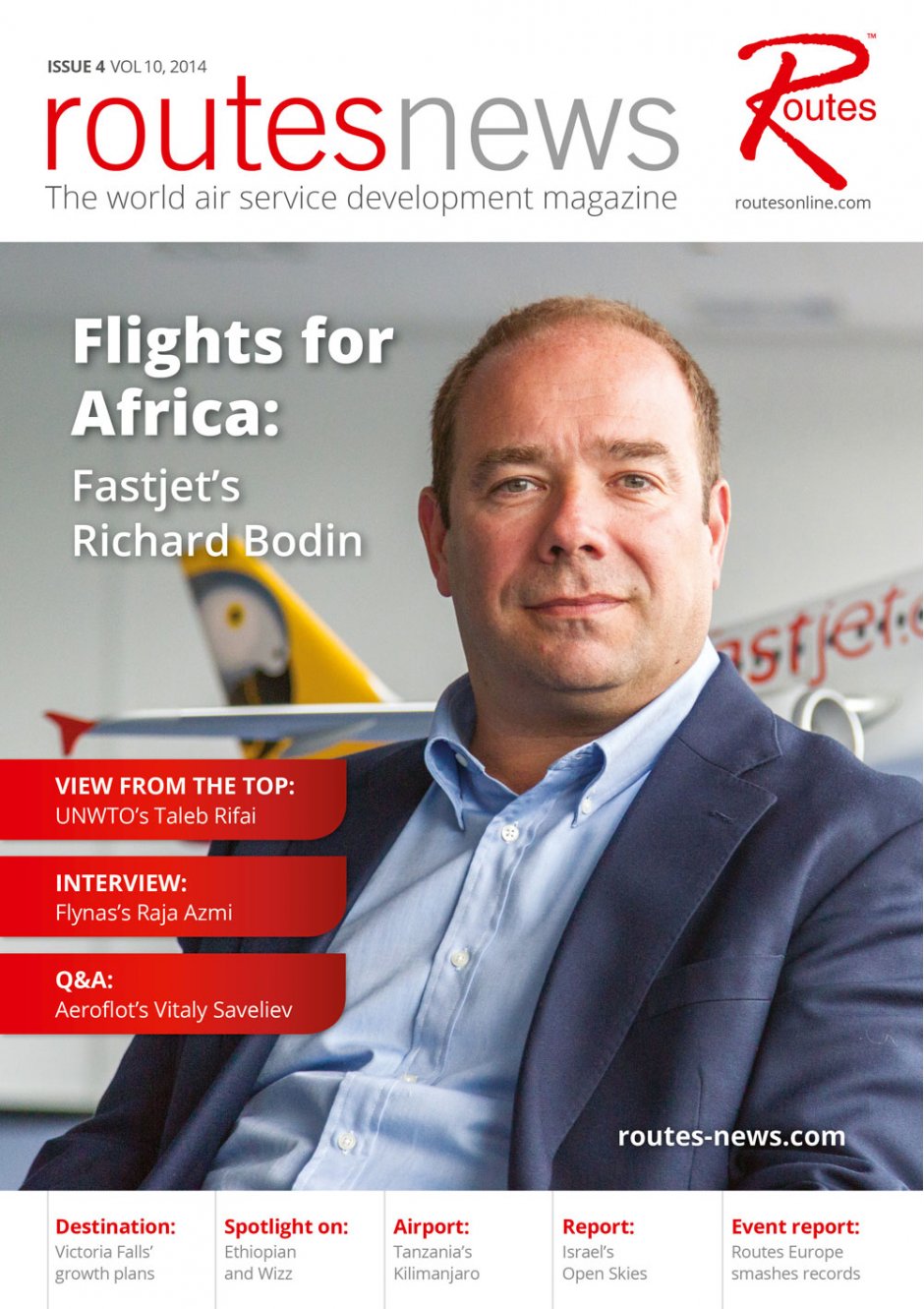Kilimanjaro International has celebrated air services success by attracting Qatar and Turkish – now it believes Africa as a whole is poised for a new era of route development, writes Lucy Siebert, acting editor of our sister publication, Routes News.
Africa is entering a new phase of professional route development, believes the managing director of last year’s Routes Africa Routes Marketing Awards winner. Mattijs Smith, managing director of Kilimanjaro Airports Development Company (KADCO), operator of Kilimanjaro International, says last year’s award win was a “big success” for the airport and had “a real effect on the community and the people who work at the airport”.
Speaking to Routes News from his office at the airport, outside Arusha in Tanzania, Smith says: “When we came back from the event, everyone was dancing and celebrating – we really saw the importance of the award. It was recognition for all the hard work that everyone had been doing and it was validation that we were doing the right thing with our route development. It was a confidence boost for the whole company.”
The award came after Qatar Airways launched new daily service to the airport in July 2012, and ahead of Turkish Airlines arriving with five weekly services in December 2012. Turkish has since upped its frequency to daily. After the launch of these two major new services, in 2013 the airport handled 825,000 passengers – nearly a 25% increase on the previous year. “We are heading to the major milestone of one million passengers, but we probably won’t introduce another new carrier this year,” says the managing director.
Smith adds he is confident other African airports are starting to follow Kilimanjaro International’s professional approach to route development. “Within the African airport environment they are just starting to realise the delicate decision-making that happens when an airline decides to operate on a route. Our success shows all the other African airports that [a route development strategy] works and it’s not just theory,” says Smith.
Kilimanjaro International’s small route development team is headed up by Christine Mwakatobe, who leads business development, and the team is supported by international consultants InterVISTAS. Smith says this support has been vital to the airport’s success. “They [InterVISTAS] are doing in-depth data analysis and that is something that is not easy in Africa,” he says.
While the Kilimanjaro team has worked hard at its route development efforts, Smith acknowledges that it has a natural advantage, thanks to its unique location. “We have a very clear proposition as a tourist destination in one of the most beautiful places in the world. We are served by scheduled carriers, and a large part of our traffic also comes from charters. We get charters from the UAE and we have even had a Qantas 747 –that is great to see on the tarmac here.”
Looking ahead, the Middle East remains an important market for Kilimanjaro, but Smith acknowledges the need to ensure the existing carriers are able to make the route a success before additional services are introduced. Smith says the airport remains in conversations with Emirates, but notes that flydubai might be more of a realistic prospect. “We are always interested in having other carriers from Europe, and Southern Africa is also a big market for us too,” he adds.
Kilimanjaro International Airport is investing $36.4 million in a major rehabilitation project, scheduled to get under way before the end of 2014. The project is being co-funded by the Dutch and Tanzanian governments.
 |
DON'T MISS the latest issue of Routes News which is available at this year's Routes Africa. |





